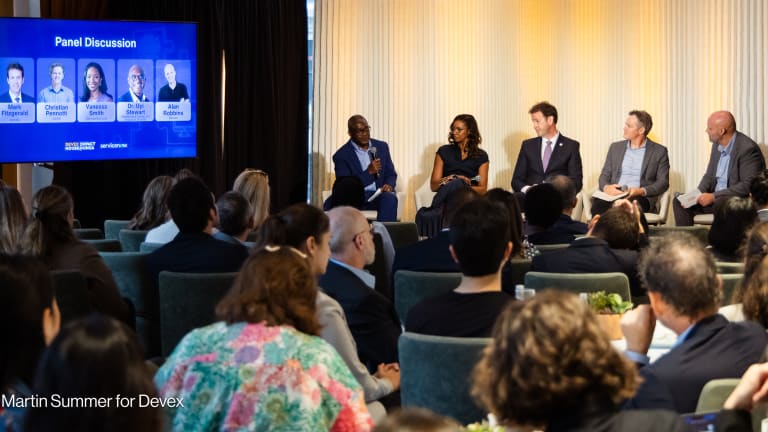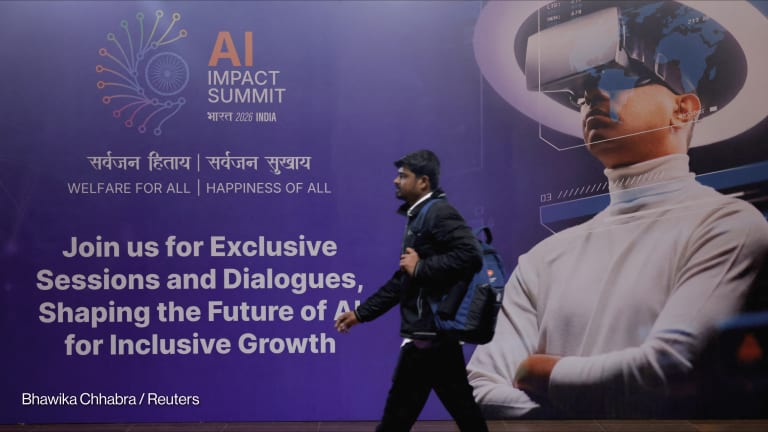Q&A: Microsoft 4Afrika regional director on skills gaps in Africa's digital transformation

ABIDJAN — Evolving digital technologies paired with increased mobile connectivity mean expansive access to the internet as mobile data continues to shape developing African economies.
But that has sparked a debate as to whether the ongoing digital transformation provides a platform for innovation and greater inclusion, or if an explosion of mobile ecosystems might exacerbate divisions within local populations.
Five years ago, the Microsoft 4Afrika initiative positioned itself as an innovation-enabling resource for African entrepreneurs and startups. It had a three-pronged mission to bring affordable internet access, cultivate in-demand skills training, and modernize digital ecosystems in Africa. Now Amrote Abdella, Microsoft 4Afrika regional director, argues that without skills development, viable business ideas risk dying before maturation — an issue now at the focus of the 4Afrika program.
Speaking with Devex at the Africa CEO Forum, Abdella highlighted that roughly 500,000 youth have been trained since 2013 by the various 4Afrika platforms, ranging from its online virtual academies to its AppFactory internship Programme for coders and developers.
“If you ask me what we’re focused on today, it’s primarily skills [development],” she said, “Because we have to move beyond the age of just using our mobile phones and ask ourselves: how do we get to the next phase where we can actually compete, where we actually have the skills that will allow us to have smart factories?”
The conversation has been lightly edited for length and clarity.
In your opinion, is the tech revolution increasing inclusion for the bottom of the pyramid in Africa or widening the gap?
Today we are asking ourselves what does digital transformation mean in today’s world. Is it in the way we deliver services to a consumer? Or is it a focused on how the system is being integrated and internally evolving?
To answer whether technology is creating inclusion or exclusion, I believe we are at a tipping point. We cannot still be having this conversation five years from now.
There’s an element for us to think about, information around governance. Digital transformation means that you can govern better: how you include your tax base but also how you disseminate your information. How you attract investment is all very much based on your ability to deliver services, so governments who are better equipped will lead to environments with better penetration and better understanding.
But it’s also around policies because this transformation is also about staying ahead. We say that our youth are our asset, and that’s true but what are we doing to think about the [technological] disruptions that are going to come? What are we doing to make sure that some are not left out? And how do you drive technologies and industries with youth at the forefront? How do you enable them and create an ecosystem for them to be able to come up with ideas?
It’s excellent to have an idea, create an idea, get financing. But how do you grow that because what we don’t want is this mushrooming of digital transformation and a very rosy picture of startups being implemented here and there. We have to go beyond that and for that to happen the economies have to change so that startups can grow to become small and medium enterprises, companies and multinationals. How do we make this happen in a way that is more inclusive, and so that the benefit of services extends beyond[those nearest to central points?
While Microsoft represents the private sector, what role do public sector stakeholders play in ensuring the inclusive adoption of digital technologies by individuals and local businesses?
Education must provide students with a future-proof and marketable skill set. Where recent graduates can go out and know that their education will allow them to get employment today, tomorrow and a year from now.
We don’t talk about STEM fields as much in Africa and the reason is that the fundamentals of the education system are just not there yet. STEM is the one that would catalyze change, but fundamentally there must be an upscale of the entire system. We need to invest in specializations. This goes away from just investing in accelerators and tech hubs but determining what it means to invest in STEM, so that it becomes part of the economy that drives transformation.
Another point is around facilitating businesses because everyone these days wants to attract investment to their country and become a [regional] hub but how do you become one if you don’t have the systems in place?
The one example that stands out today is Rwanda and the sheer simplicity ... the way they’ve simplified their business processes so that you can set up a business in nearly three hours. How did they get to this point and what does one need [to achieve it]? So yes, certain countries have nailed it but we need more of them. We want to get to the point where you can’t count all the innovations coming out of Africa.
Search for articles
Most Read
- 1
- 2
- 3
- 4
- 5








